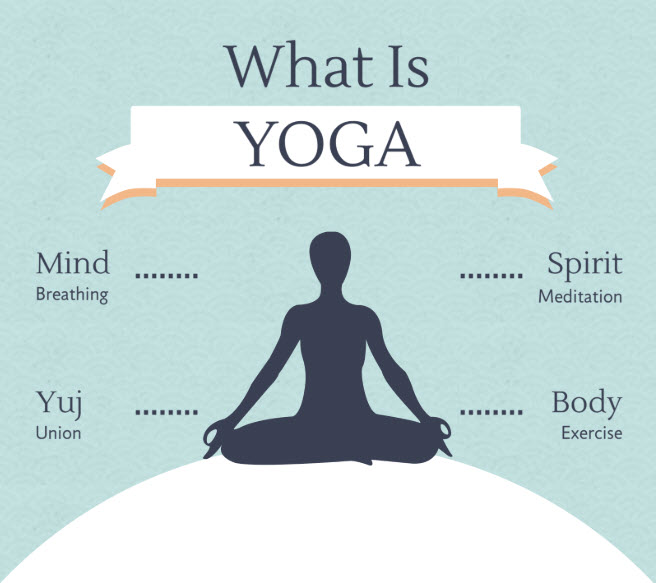
Bhakti yoga is a devotional form of yoga that incorporates chanting, mudras (mudras), and asana. It is possible for participants to devote time to tending an alter. Chanting isn't necessary but it can help someone to be more focused on the core beliefs of yoga. Bhakti can be very helpful, regardless of religion. These are some of these benefits of this style.
Bhakti is a form of devotion. Bhakti is a form of devotion that focuses on a particular type of divinity and trains the mind towards the heart center. During the practice period, devotees will meditate on a personal deity and then, eventually, they will focus on the real nature the ultimate reality. This is an essential element in a Hindu temple. Although the temple should not have any other deities, they must include all five. Those who practice bhakti yoga are bound by strict moral codes. They cannot do any harm, nor should they justify their actions.

Bhakti yoga is a way to tap into the universal love within every human being. Through the practice, the person develops a trust in the universe and generates positive energy to help others. Bhakti yoga is a way to develop a devotional fire within one's heart. Bhakti yoga can also be considered a spiritual practice.
There are 6 types bhakti within Bhakti Yoga. Para bhakti (lower form of devotion) is the first. This form is rooted in selfish desires. Para kriya, however, is acknowledging the transcendent God. It's important to know that the practice of bhakti yoga is not limited to kirtan or chanting.
Bhaktas express their love for God through chanting. They might attend kirtan services, or sing their favorite spiritual songs at home. Bhakti yoga isn't about having a strong voice. It's all about intention. Chanting is an effective form of meditation in the context of a class of bhakti Yoga.

When practicing bhakti yoga, the devotee can be transformed into an idol by worshipping the God. You can perform many different bhaktiyoga practices. Chanting is the most common. However, a person should note that a bhakta can practice the art of devotion in a variety of ways. Some bhaktas may use a mala in order to count the number times they have recited certain mantras.
Practicing bhakti yoga is the most basic type of yoga. Persons should believe in God and the Supremeself. When the practitioner has reached this level, bhaktiyoga will be possible. The practice and enjoyment of bhakti yoga can dissolve impurities within the practitioner's Chitta. Bhakti will help one develop a greater capacity for spiritual growth.
FAQ
Is it true to say that protein overeating can lead to kidney stones?
Protein helps maintain healthy bones and tissue. Too much protein can cause calcium to be excreted through the urine. This can lead to kidney stone formation.
It's important to note that not everyone gets kidney stones after eating more than 2 grams of protein per kilogram (2.2 pounds) of body weight. High amounts of protein can be consumed by some people without causing kidney stones.
Watching your sodium intake can help prevent kidney stones. The kidneys regulate the amount of sodium they consume. Too much sodium results in a higher risk of developing kidney stones.
You can also reduce your intake of proteins if you develop kidney stones. For most people, protein provides half their daily caloric requirements. Reduce your intake of protein and you will likely lose weight.
If you do decide to eat more protein, don't go overboard. Aim for less than 20% of total calories from protein.
Do I have the obligation to exercise every day or just on occasion?
No! You should do at least 30 mins of moderate-intensity activity 5 days per week. This means that you should be able to walk fast enough to feel slightly out of breath, or bike hard enough to sweat.
Do weightlifting burn fat faster?
You can lose more fat by weight lifting, but only when you do it in conjunction with cardio.
To maximize the benefits of weightlifting, you need to perform it after cardio workouts.
Weightlifting, when done properly, increases your heart rate.
You will not notice any changes in your body composition if you don’t combine it and cardio.
Statistics
- Cardmembers earn 5% Back at Amazon.com with a Prime Credit Card. (amazon.com)
- Candidates and applicants must pass all four tests at 70% (minimum level) to graduate from Basic Deputy U.S. Marshal (BDUSM) Training. (usmarshals.gov)
- According to the American Academy of Dermatology (AAD), men over 50 are at a heightened risk of developing it. (healthline.com)
- By John Thompson Take a whopping 38% off a set of PowerBlock Pros. (menshealth.com)
- According to the American Heart Association, blood pressure should be checked at least once every two years, beginning at age 20. (my.clevelandclinic.org)
External Links
How To
How can I burn fat and exercise?
Exercise burns calories by increasing metabolism and oxygen consumption.
Exercise at a moderate intensity to safely lose weight.
To burn fat while exercising, follow these tips:
-
Cardio exercises include walking, running, swimming, cycling, running and jogging.
-
Three times per week, exercise for 30 minutes.
-
You can add strength training into your exercise routine if you're looking to lose even more weight.
-
Avoid intense training. You can build muscle without having to lose muscle tissue.
-
Keep hydrated during exercise. Water flushes out toxins, and keeps your body properly hydrated.
-
Choose low-fat protein shakes after working out. Protein shakes can help boost energy and repair muscles.
-
Take smaller meals throughout each day to avoid feeling hungry.
-
Don't skip breakfast! You can feel tired and slow if you skip breakfast.
-
Take care of your mental health. Stressful situations can affect your metabolism.
-
Keep a positive attitude. Studies show that people who believe they are overweight gain more weight then those who think they are attractive.
-
Get enough sleep. Insufficient sleep can make it more difficult to lose weight.
-
Keep active. Keep moving every hour.
-
Maintain a healthy diet. Eat right to feel satisfied and full for longer.
-
Find ways to relax. Relaxing doesn't mean your body releases stress hormones which cause muscle tissue to be destroyed.
A balanced diet provides all the nutrients necessary for growth and development.
Eat six small meals each day instead of three large ones. This gives your body more time to digest the food you eat.
To maintain strong bones, you need to consume 500 mg of calcium each day. Calcium can also be found in milk products, yogurt, fortified Soy beverages, orange Juice, cereals and bread.
Calcium is found in leafy green vegetables and beans, tofu as well as nuts, seeds, cheese, and seeds.
Vitamin D is essential for calcium absorption. It's found in fatty fish, egg yolk, and some fortified foods.
Vitamin E is important for skin health. Vitamin E can be found in vegetable oils as well as wheat germ oil, peanuts and almonds.
Your body requires zinc for normal immune function and wound healing. Zinc can be found in seafood, legumes and meats.
Zinc deficiency may cause fatigue, loss appetite, depression, and impaired immunity.
Sugar intake can lead to insulin resistance which causes blood glucose levels to rise. Insulin resistance is linked to weight gain.
Insulin resistance occurs when the bloodstream is full of free radicals. Free radicals are molecules that have unpaired electrons, which can cause damage to cell membranes or other parts of your body.
The main sources of free radicals are food additives.
Free radical damage may lead to cancer, heart disease diabetes, arthritis, asthma and other conditions.
To prevent free radical damage, eat a healthy diet rich in antioxidants. Antioxidants protect against oxidative damage.
Antioxidant vitamins include Vitamin C (found in citrus fruits), beta carotene (found in carrots, sweet potatoes, spinach, broccoli, cantaloupe, apricots, squash, mangoes, peaches, peppers, tomatoes, cabbage, cauliflower, kale, Brussels sprouts, collard greens, watermelon, and strawberries), and Vitamin E (found in nuts, olive oil, avocados, and eggs).
Selenium, copper as well as manganese and zinc are some other antioxidant nutrients.
Selenium protects cells from free radical damage. Selenium is found in Brazil nuts, tuna, liver, kidney, shrimp, cod, turkey, beef, lamb, pork, and chicken.
Copper protects the eyes, brain, lungs, liver, and red blood cells. Copper can be found in shellfish and poultry as well as meat and organ meats.
Manganese is essential for bone structure. Manganese is found as a component of bone structure in brown rice (spinach, bananas), prunes, raisins and oatmeal.
Zinc is essential for normal growth, reproduction, wound healing, and average growth. Zn is found in lean cuts of meat, white fish, poultry, and eggs.